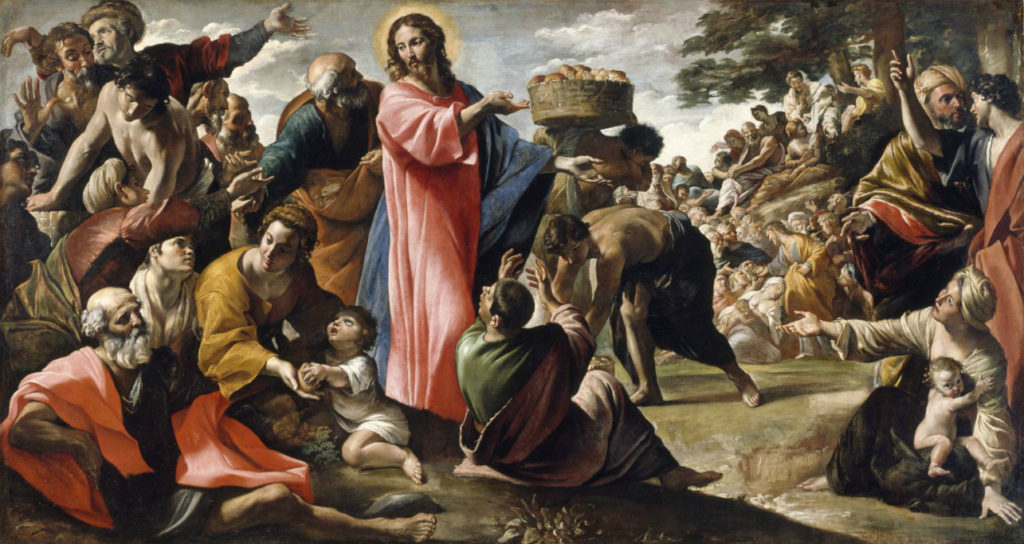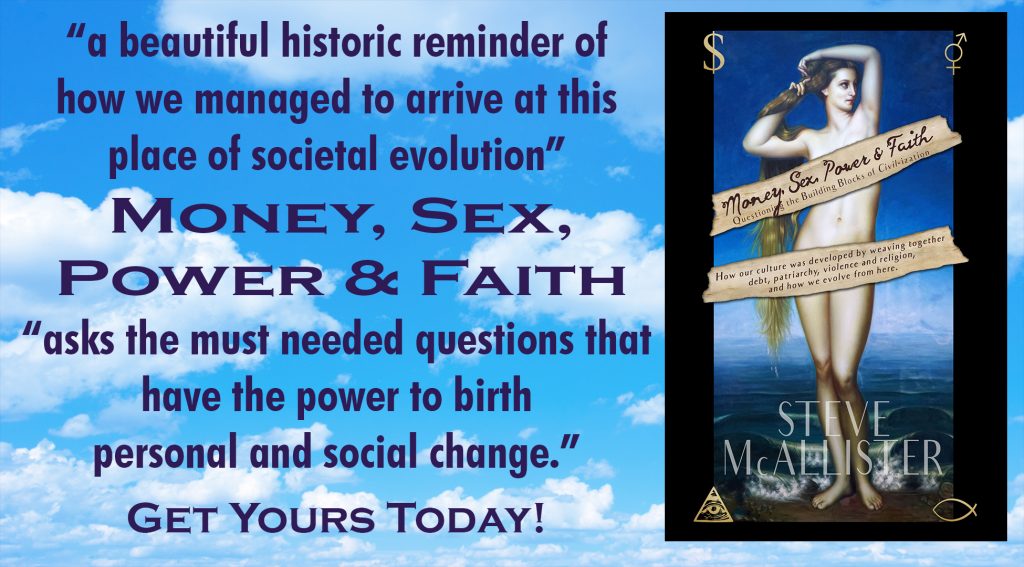The following is a chapter from Money, Sex, Power & Faith.
Order your copy in paperback or for Kindle!
“I think if the church did what they were supposed to do we wouldn’t have anyone sleeping on the streets.” – Michael W. Smith
After killing the head chancellor of Parliament for not signing off on the annulment of his marriage so he could marry another, King Henry appointed himself as divine and decided upon the first set of guidelines for the Church of England as it separated from the Roman Catholic Church. Despite his thirst for blood, Henry was trying to establish a religion not that far removed from the Roman Catholic Church, but one that would funnel money into his accounts instead of Rome’s. To reach this end, much of the doctrine was quite similar to Catholicism. Still drawing largely from the beliefs established by the papacy, other than the “divine right of kings,” the Ten Articles Henry wrote for his version of Christianity included the binding authority of the Bible and creeds, the necessity of baptism, the sacrament of penance, the belief that the bread and wine of the Eucharist are literally Christ’s body, the trifecta of faith-charity-obedience, permissible branding and the use of images, honoring the saints and Mary, the invocation of saints, the observance of rites and rituals, and the doctrine of purgatory.
Penalties for not believing in the articles had a variety of punishments, ranging from fines and imprisonment to death. In the ensuing years, the King would lighten up a bit in the severity, but he was a real stickler for transubstantiation, and pushed the idea that bread and wine were really flesh and blood. Of course, considering how frequently the man liked to execute people, it makes sense that his religion would reflect it through inadvertent cannibalism.
In The Institution of the Christian Man, Henry expanded on the Ten Articles through the Apostles’ Creed, the Seven Sacraments, the Ten Commandments, and more exposition on the boundaries of God and why He needed to punish people. He also commissioned a translation from the German editions of the Bible instead of the original texts, which probably allowed for some smoothing around the edges of particulars. Although the King produced his own Bible, he didn’t want anyone but men and women of nobility to read it, reasoning that common folk would just misinterpret it anyway.
As the authority of the Roman Catholic Church was challenged by the inception of the Church of England and the Protestant Reformation, in 1545, the Pope finally called together the Council of Trent, a group that would meet twenty-five times over the next couple of decades to finally solidify what Catholics should actually believe and how they should do things. Unfortunately, although they were incredibly thorough in brainstorming ways in which they could facilitate dominion over other people’s private parts and beat them into submission either literally or by threat of eternal damnation, Henry and his new Church never took the time to address the actual tenets of Jesus’ commission to shelter the homeless, feed the hungry, and care for the sick and imprisoned.

Although the Roman Catholic Church had been managing to keep the poor managed, they didn’t necessarily implement many strategies for sustainably carrying out the practices of providing shelter, food, and company either. The Roman Catholic Church at large was more concerned with ornate architecture and gold-trimmed everything, but they did at least offer a bit of help. However, when they stopped doing it, their absence was certainly noticed.
When the King of England dissolved the Roman Catholic monasteries and established the Church of England, he also unwittingly dissolved the means to care for the poor. Regardless of how lavishly the Roman Catholic clergy had decorated their lives, they had still provided care for those who could not adequately maneuver the game of money, and without them, England saw a rise in the destitute and downtrodden. With the Church no longer fulfilling this function by the time she took the throne, Queen Elizabeth eventually implemented the Poor Law in 1601 to enable the government to take up the slack.
Based upon the Judeo/Christian belief system of the time, poverty was seen as a moral fault, and since the Church, Catholics, Protestants, and Anglicans (the new Church of England) alike, were no longer in the business of helping the poor, the duty fell upon government. This ideology spread to the New World, and it became part of the underpinnings of how our society and its government would deal with the poor and poverty-stricken as morally reprehensible.
Order your copy of Money, Sex, Power & Faith today!


